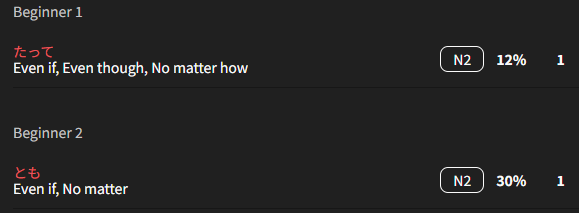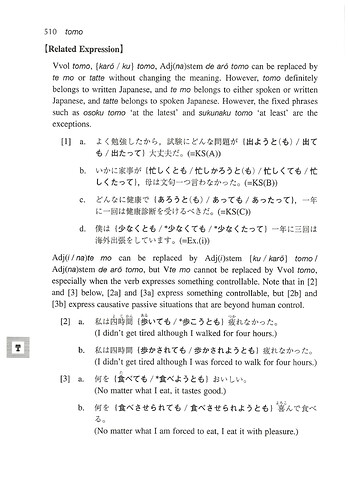Are these two grammar points completely exclusive?
They both have the meanings of “Even If” and “No Matter”(“No Matter How”)
I’m having a memory conflict where I’m failing these two points interchangeably over and over when I’m filling answers for “Even If”
Example sentence:
真剣に告白(Even If), 彼女は冗談だと思うかもしれない。(する)
I tried to fill
真剣に告白しようとも, 彼女は冗談だと思うかもしれない。
However the system doesn’t even give a second chance to ‘look for another grammar point’ or similar for this one, so is it just completely wrong? I’m definitely missing the nuance here, for anyone more experienced how should I go about understanding these?
EDIT:
I’ve just done another example sentence:
生徒が授業に出席(Even If Not)、教師はきちんと授業を進めていくべきだ (する)
And Filled:
生徒が授業に出席しなくとも、教師はきちんと授業を進めていくべきだ
And it was correct and accepted.
So I’m completely not understanding the nuance between these two "Even If"s






